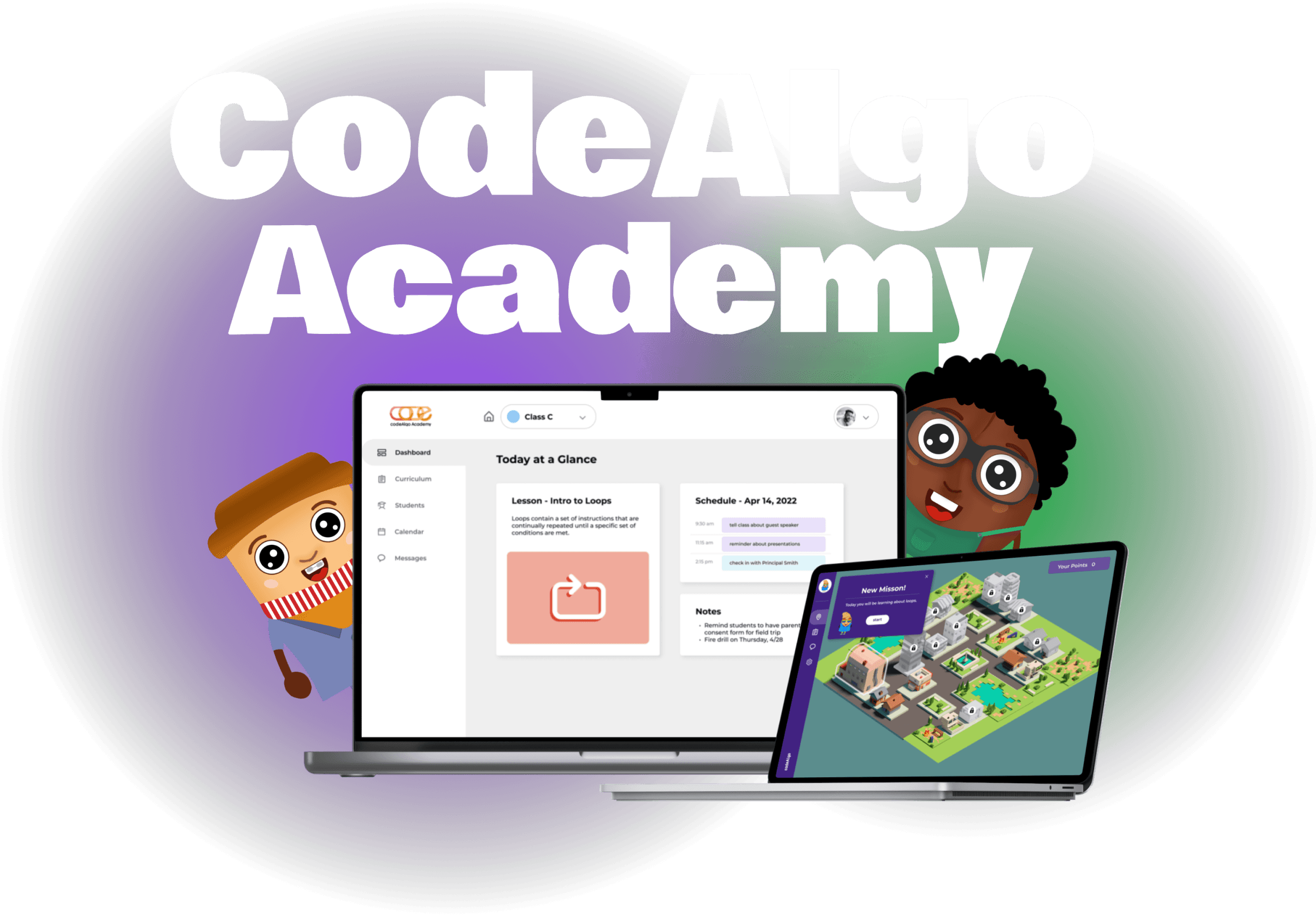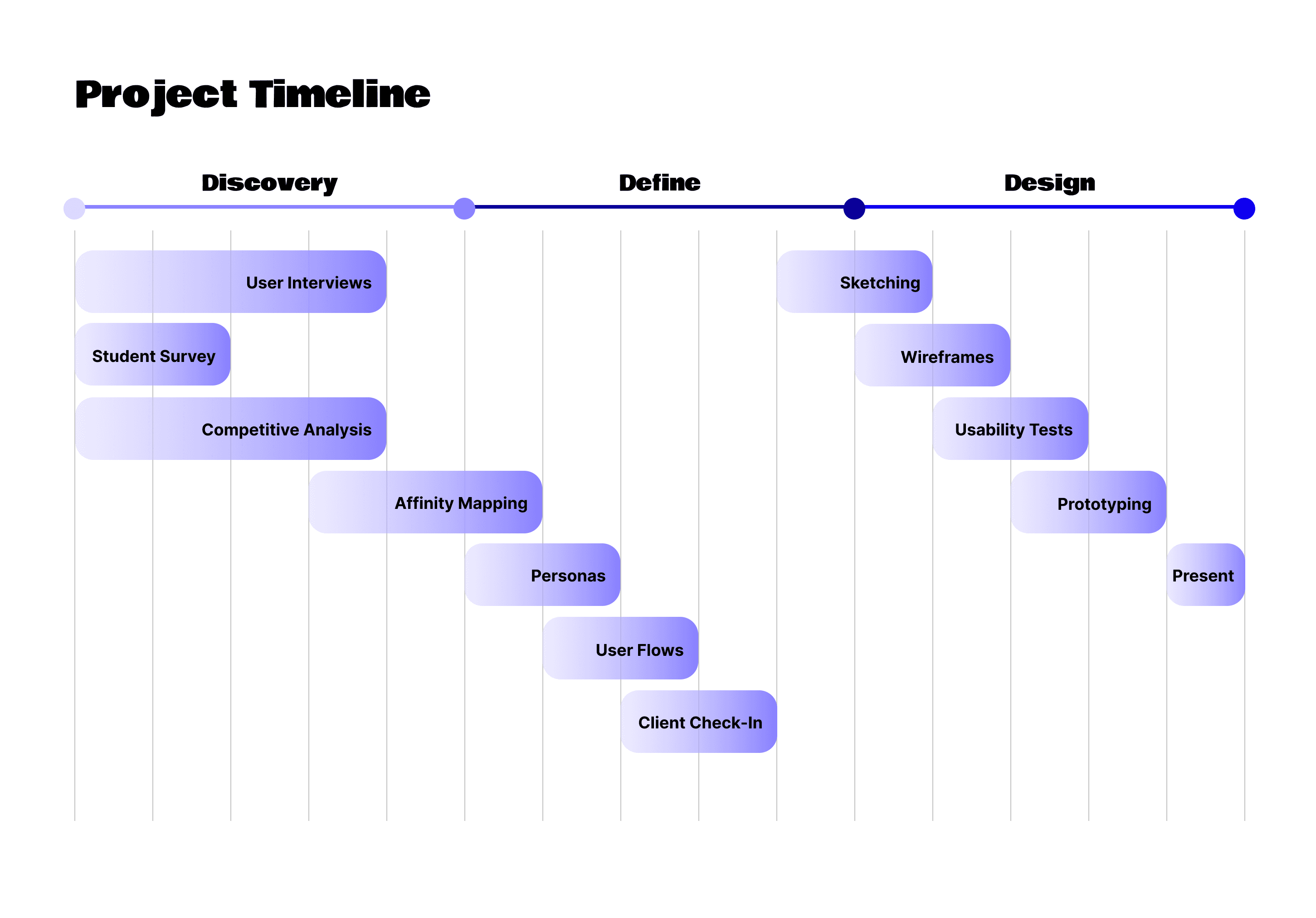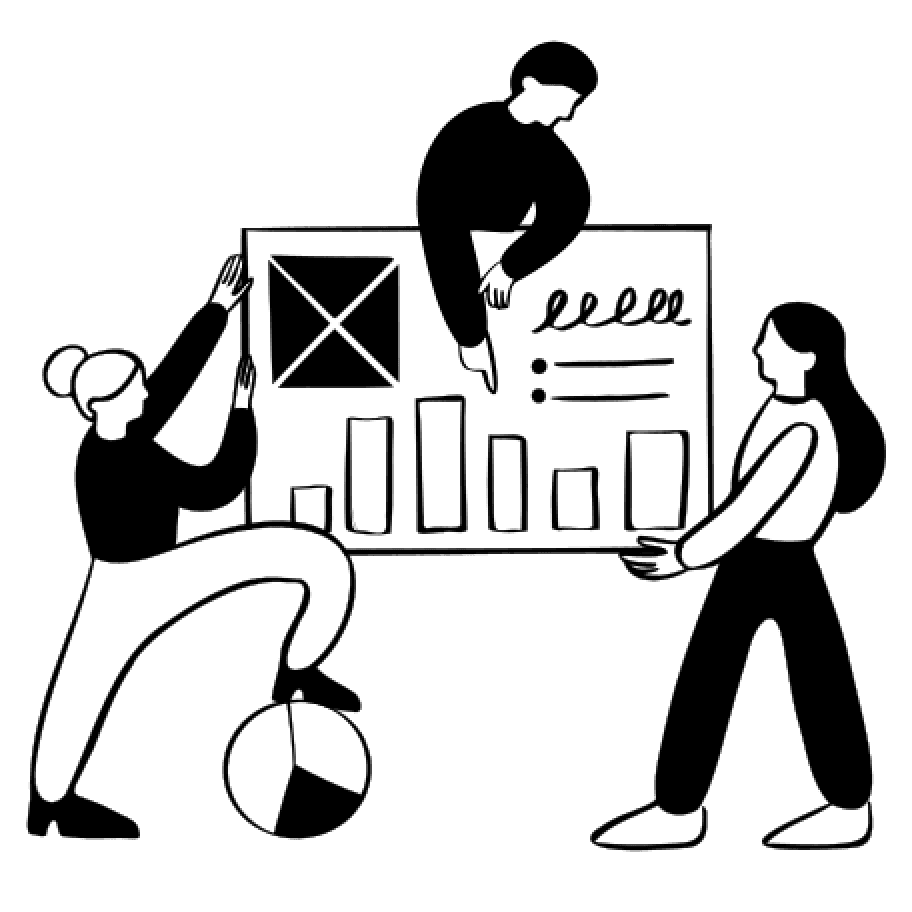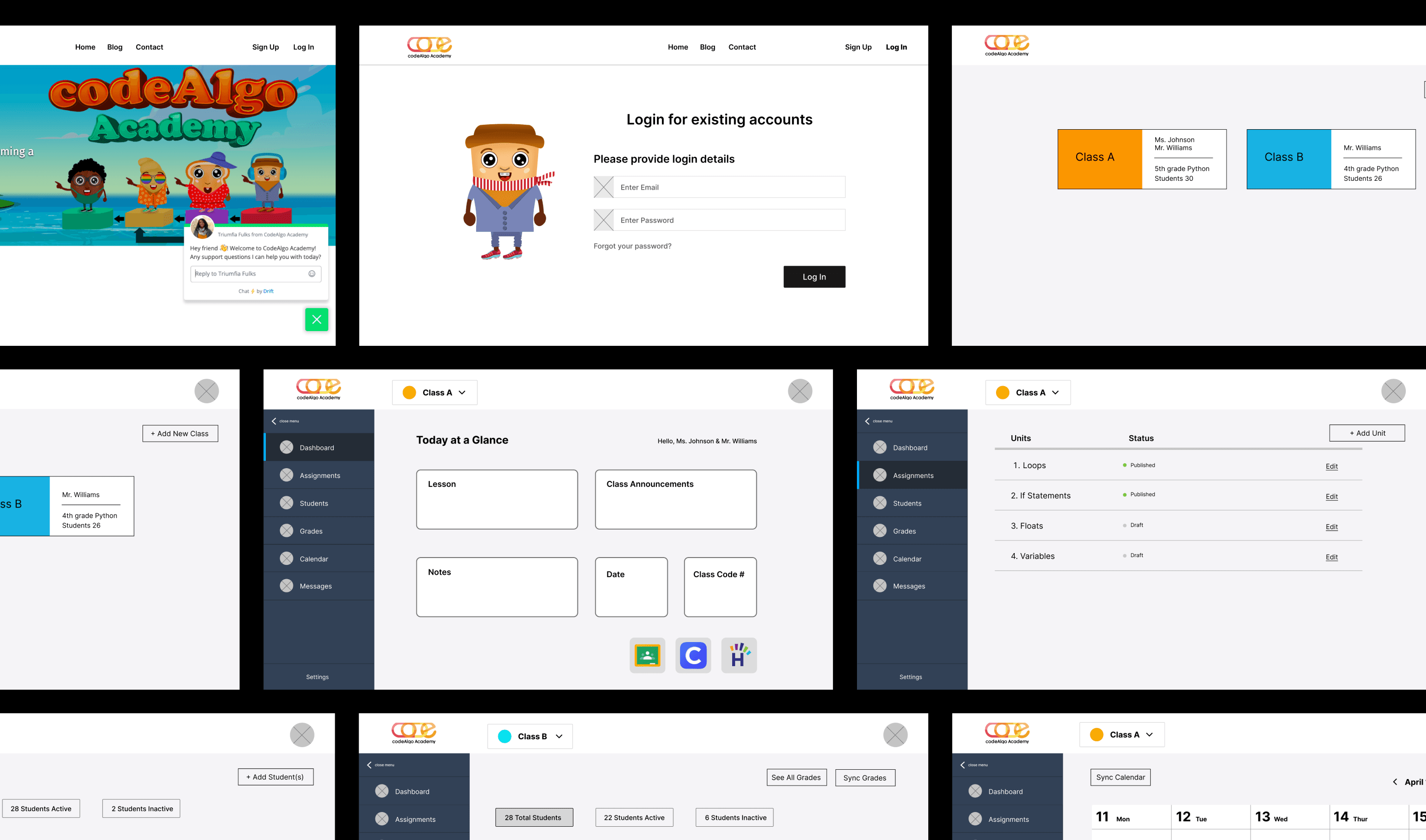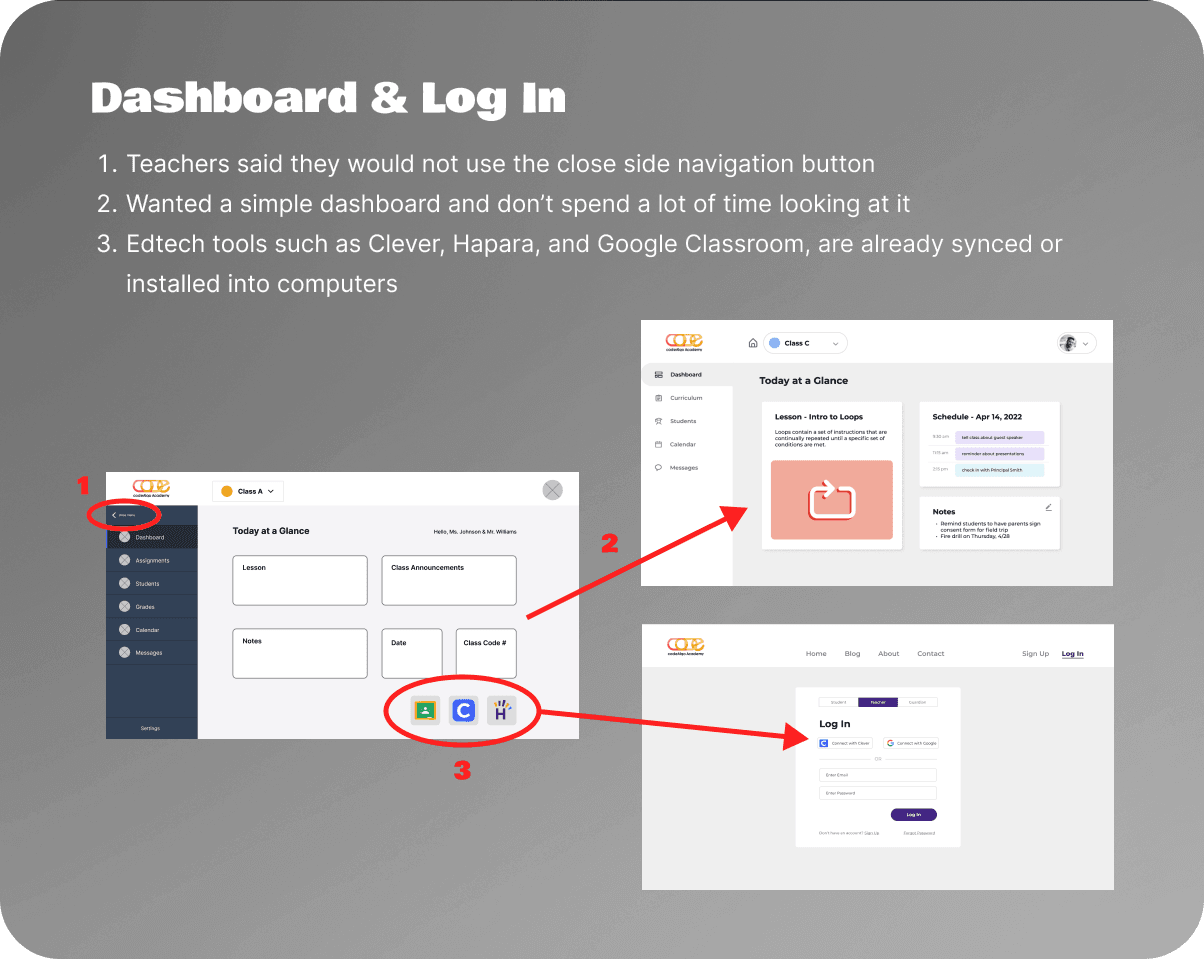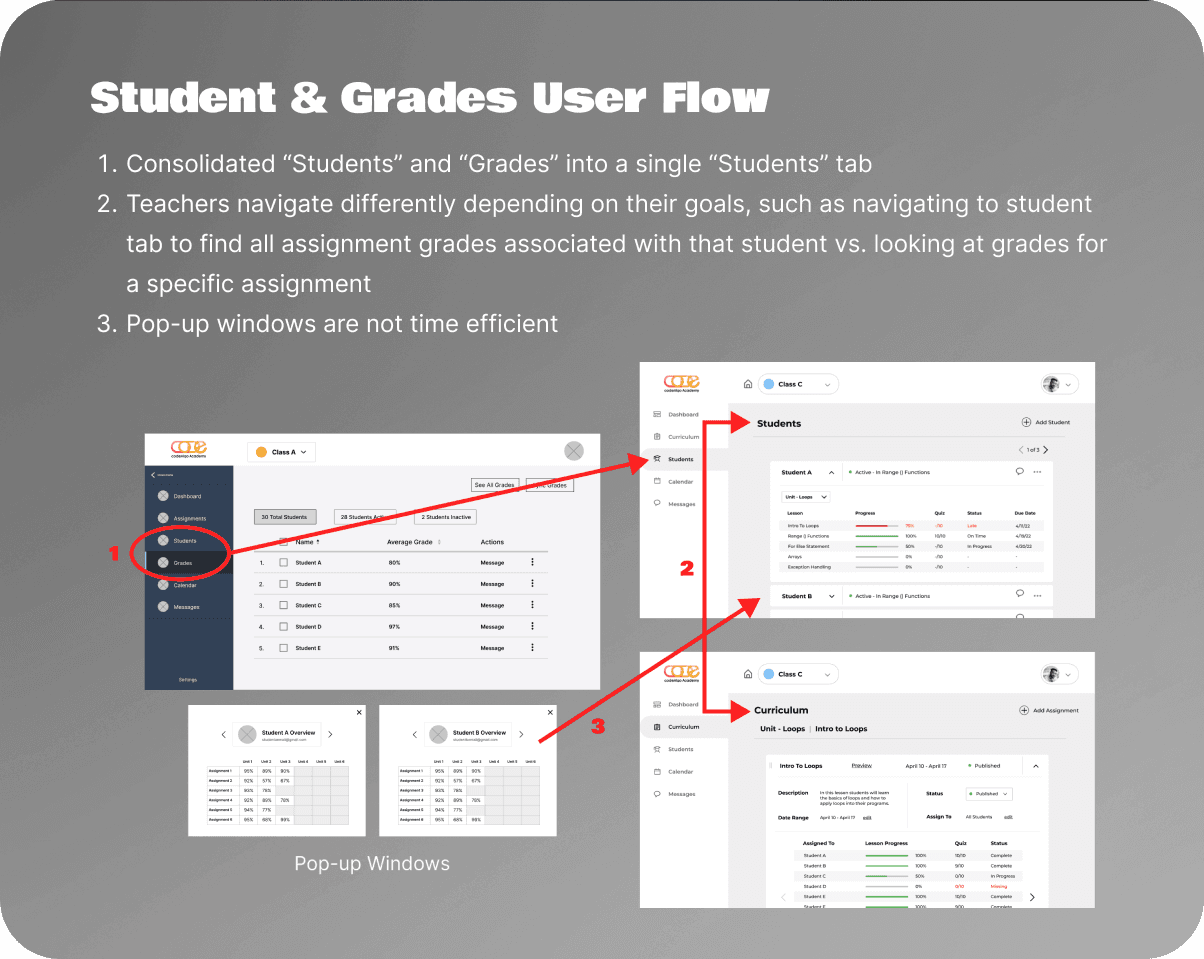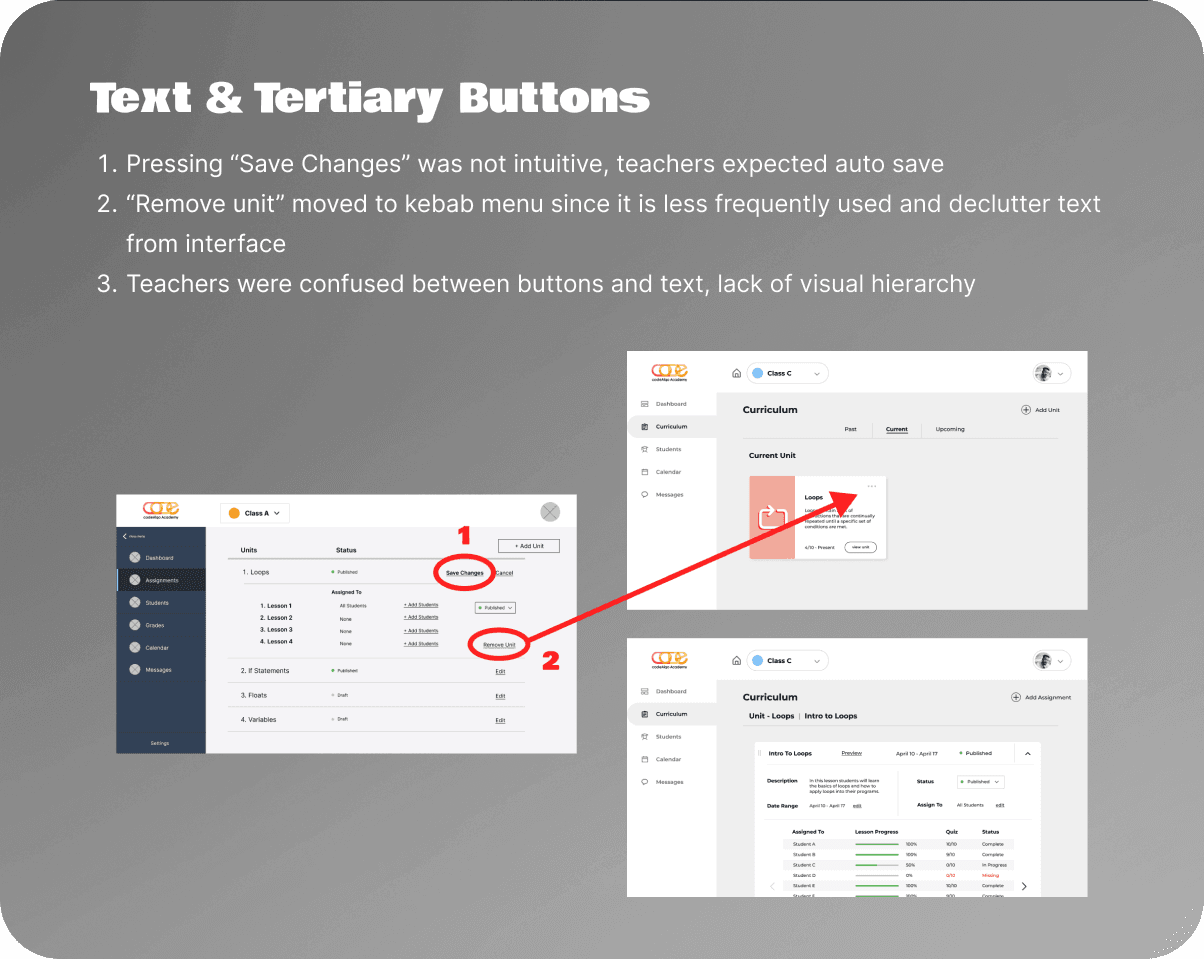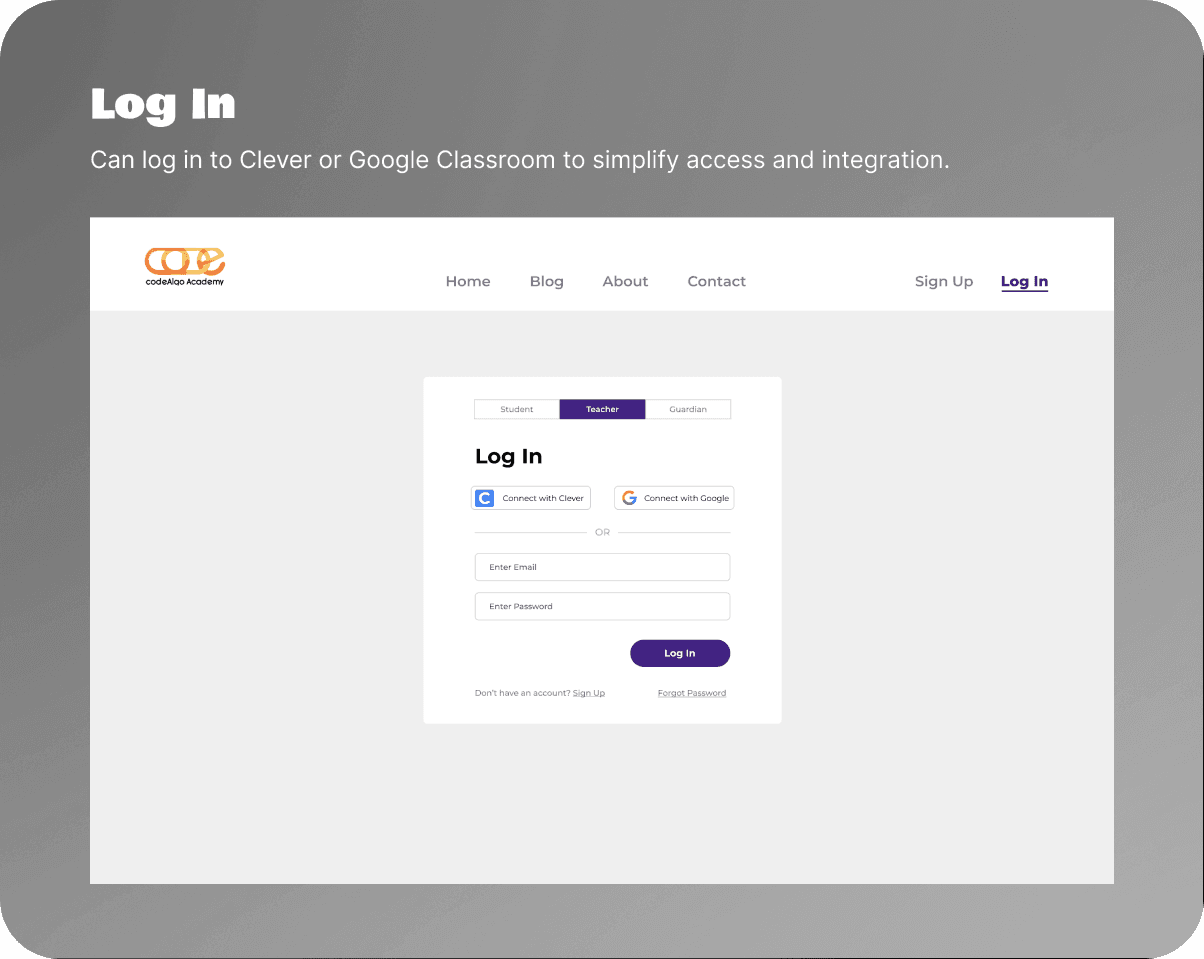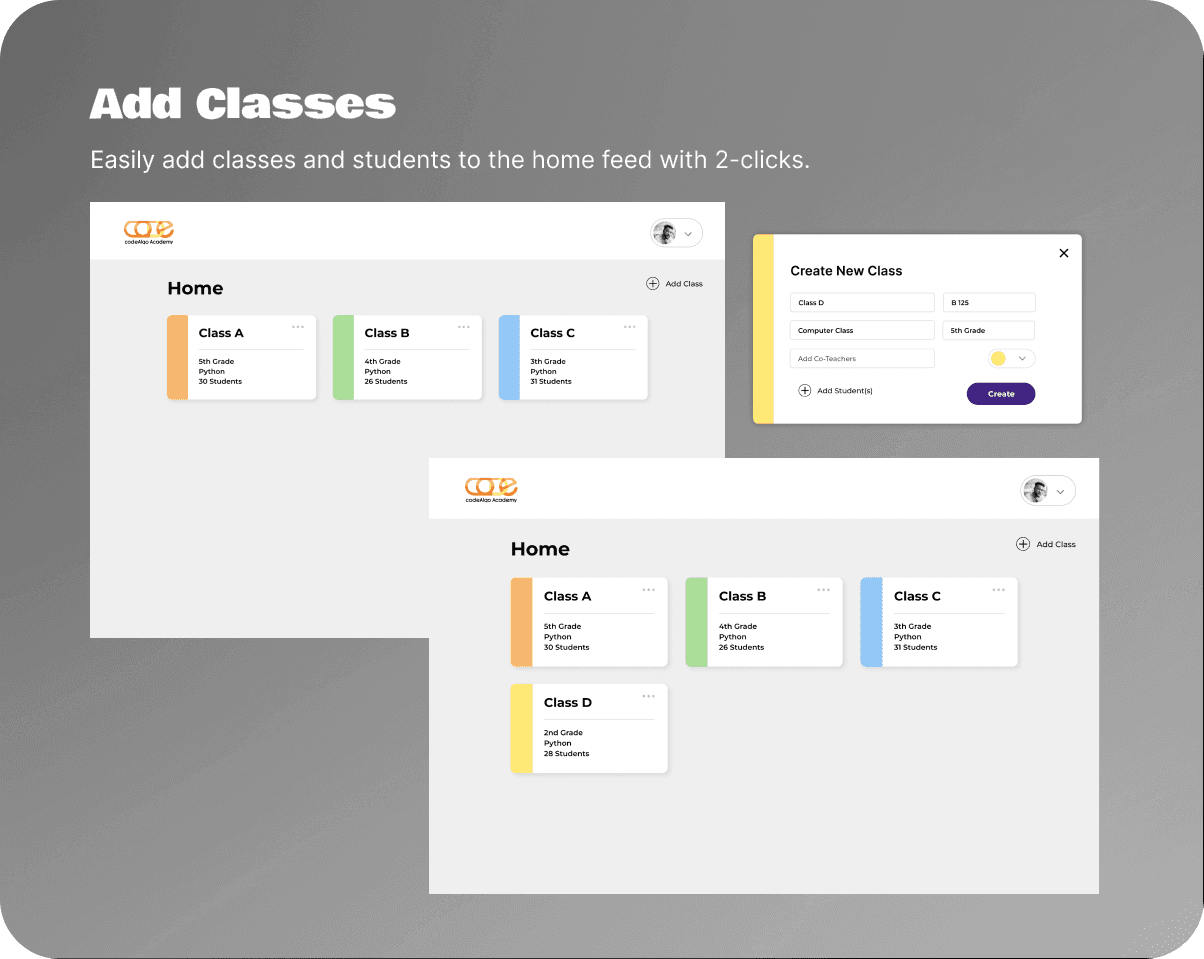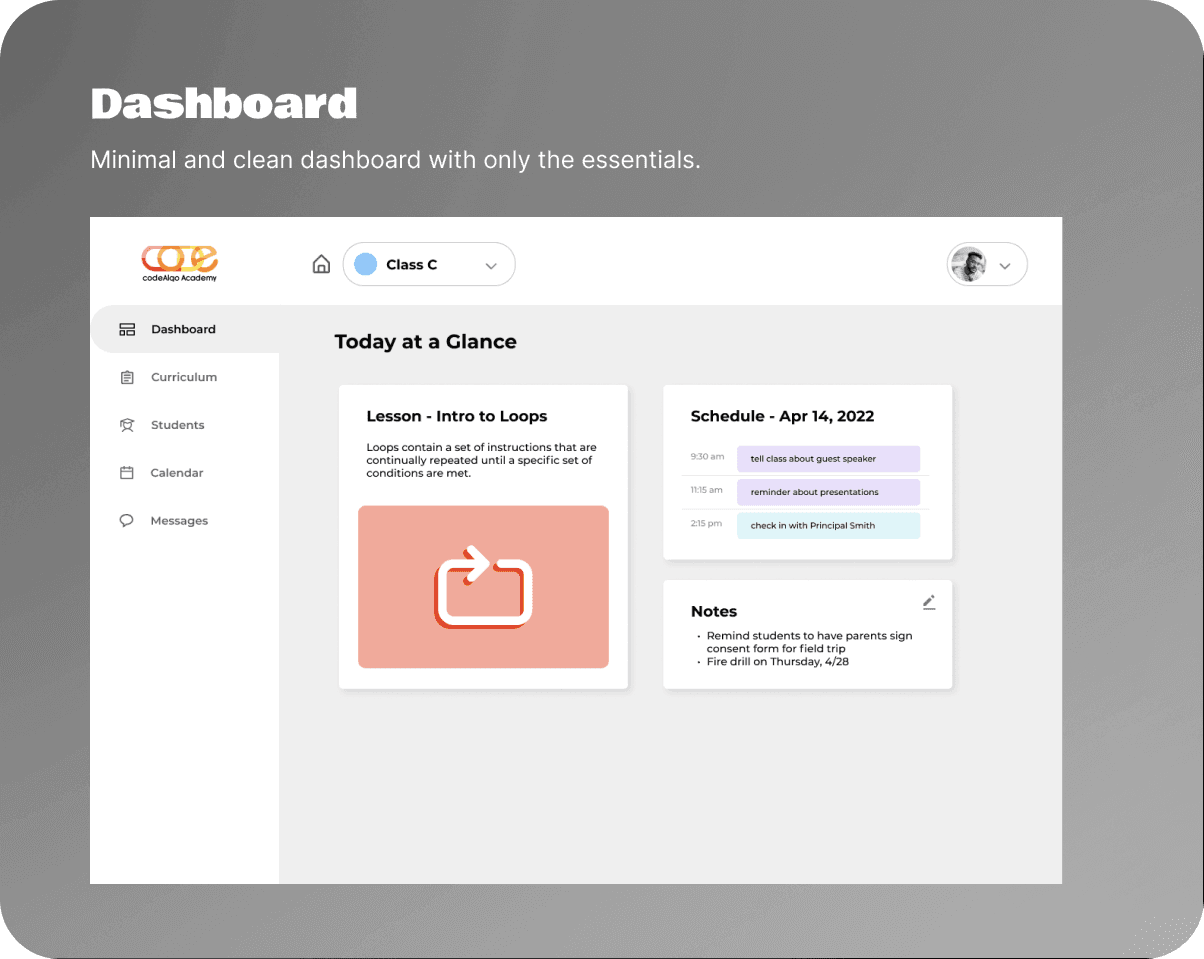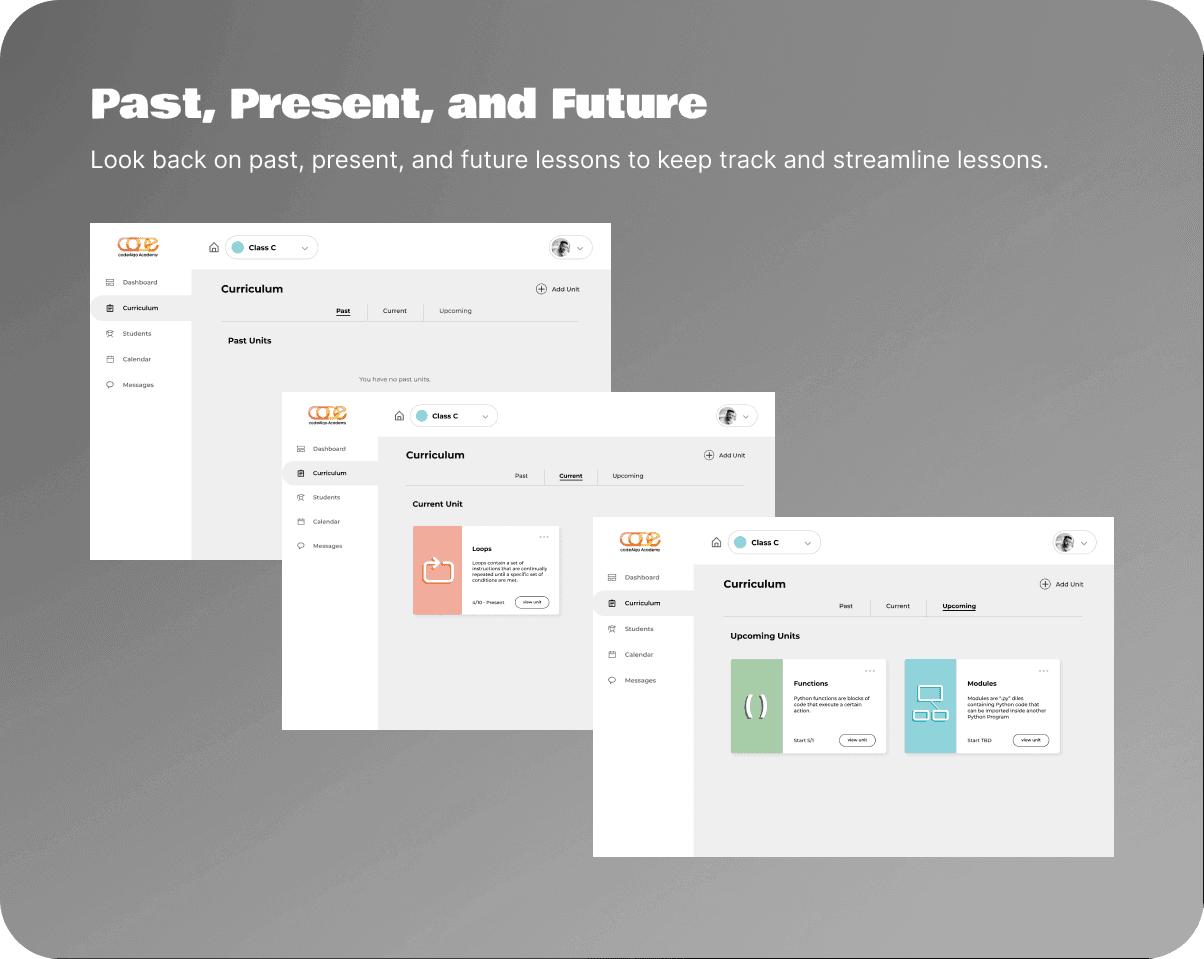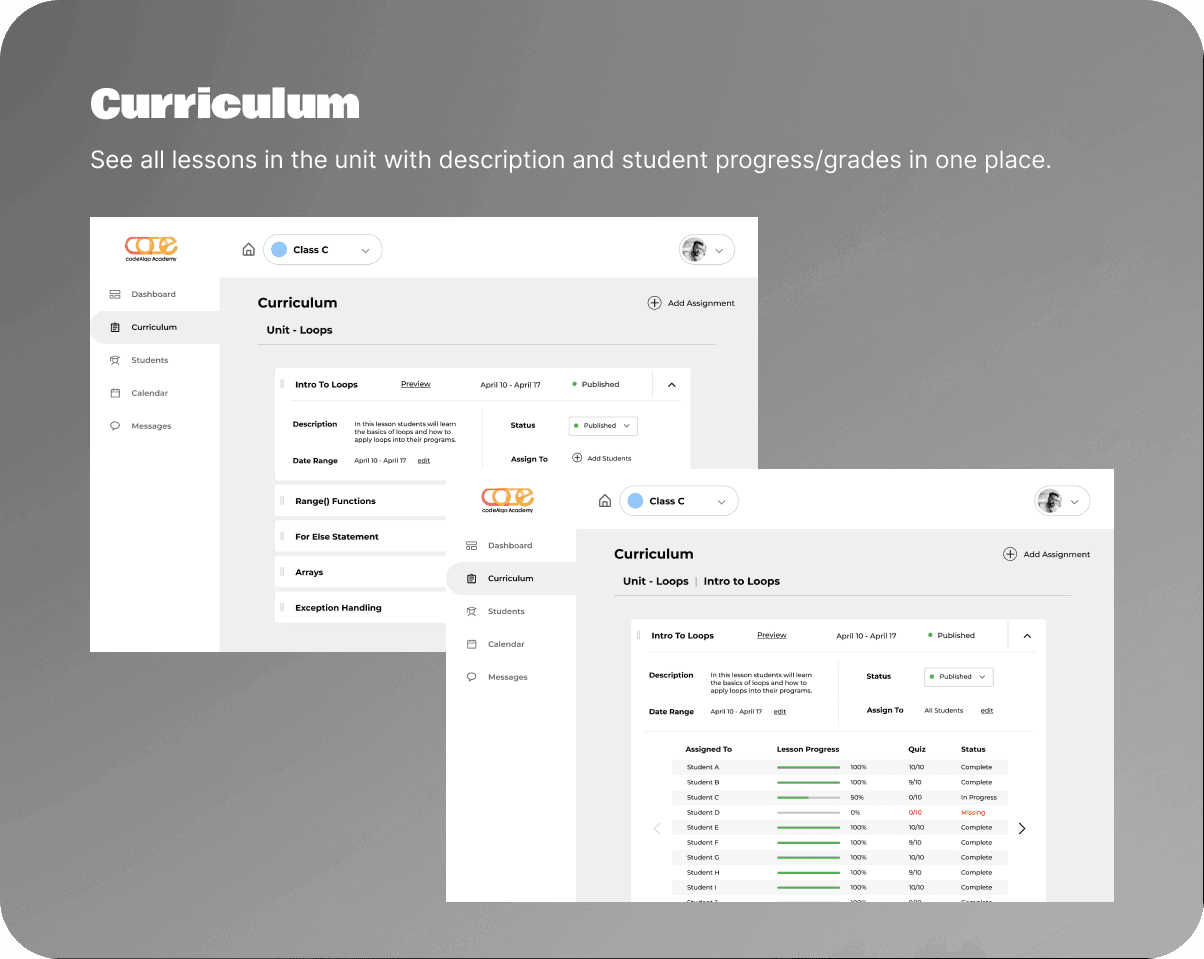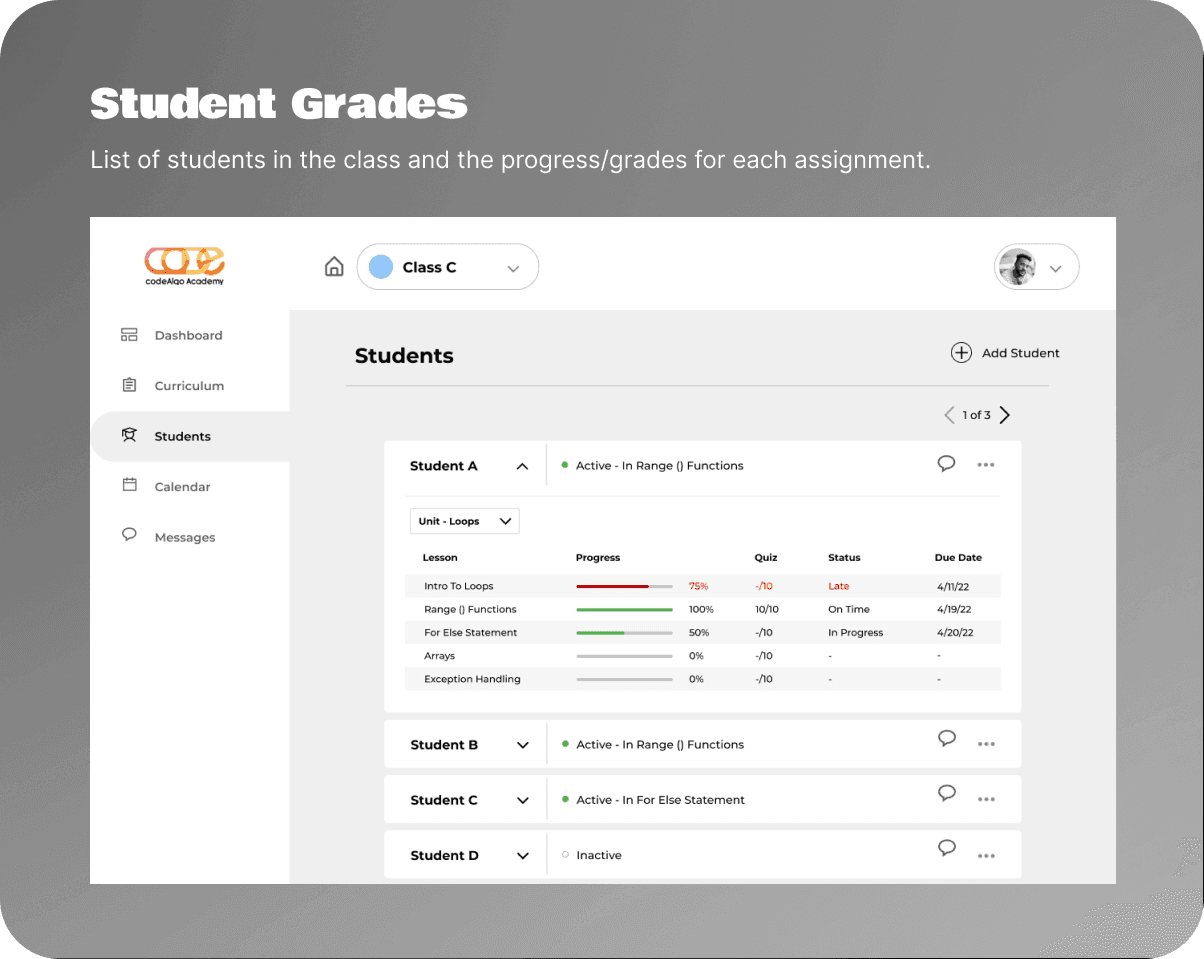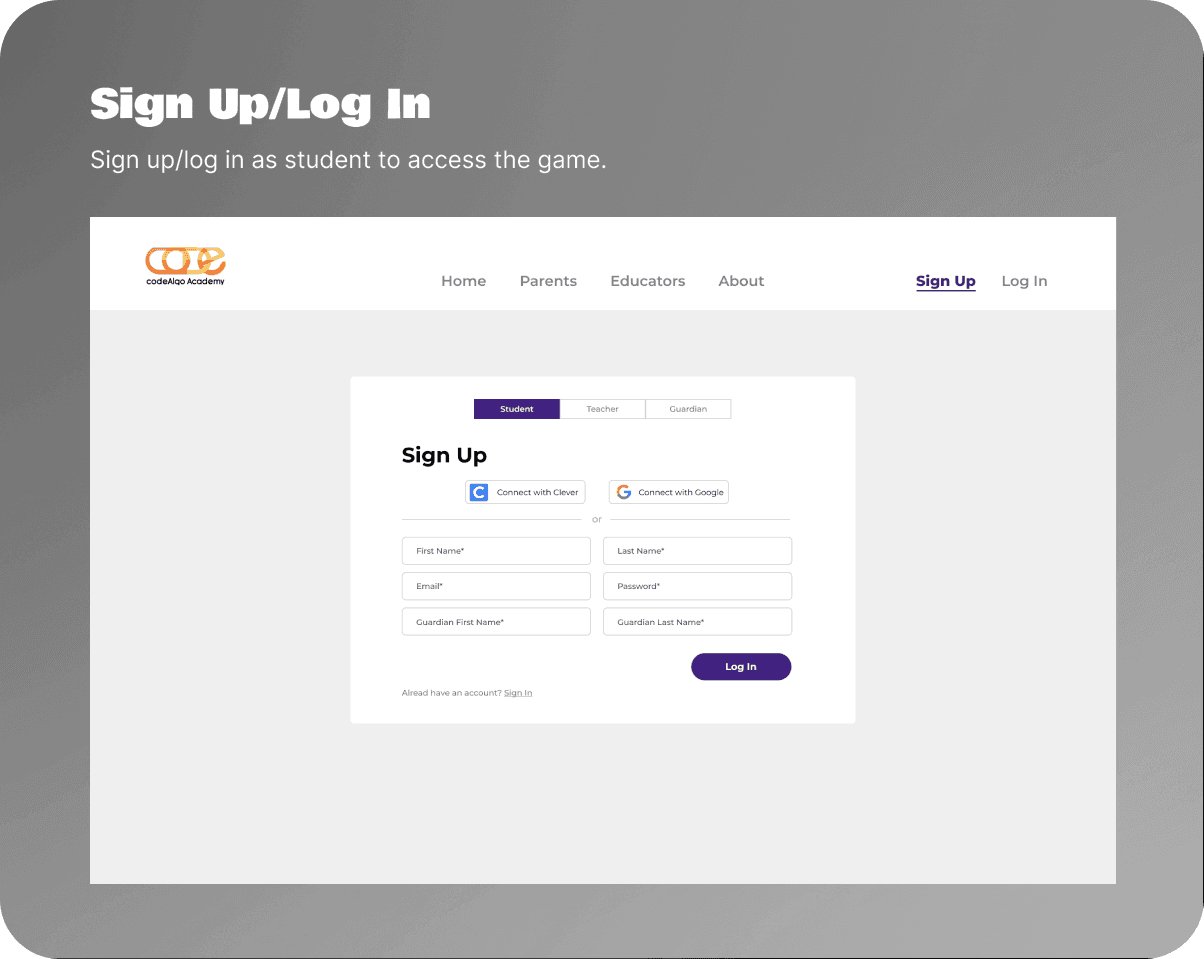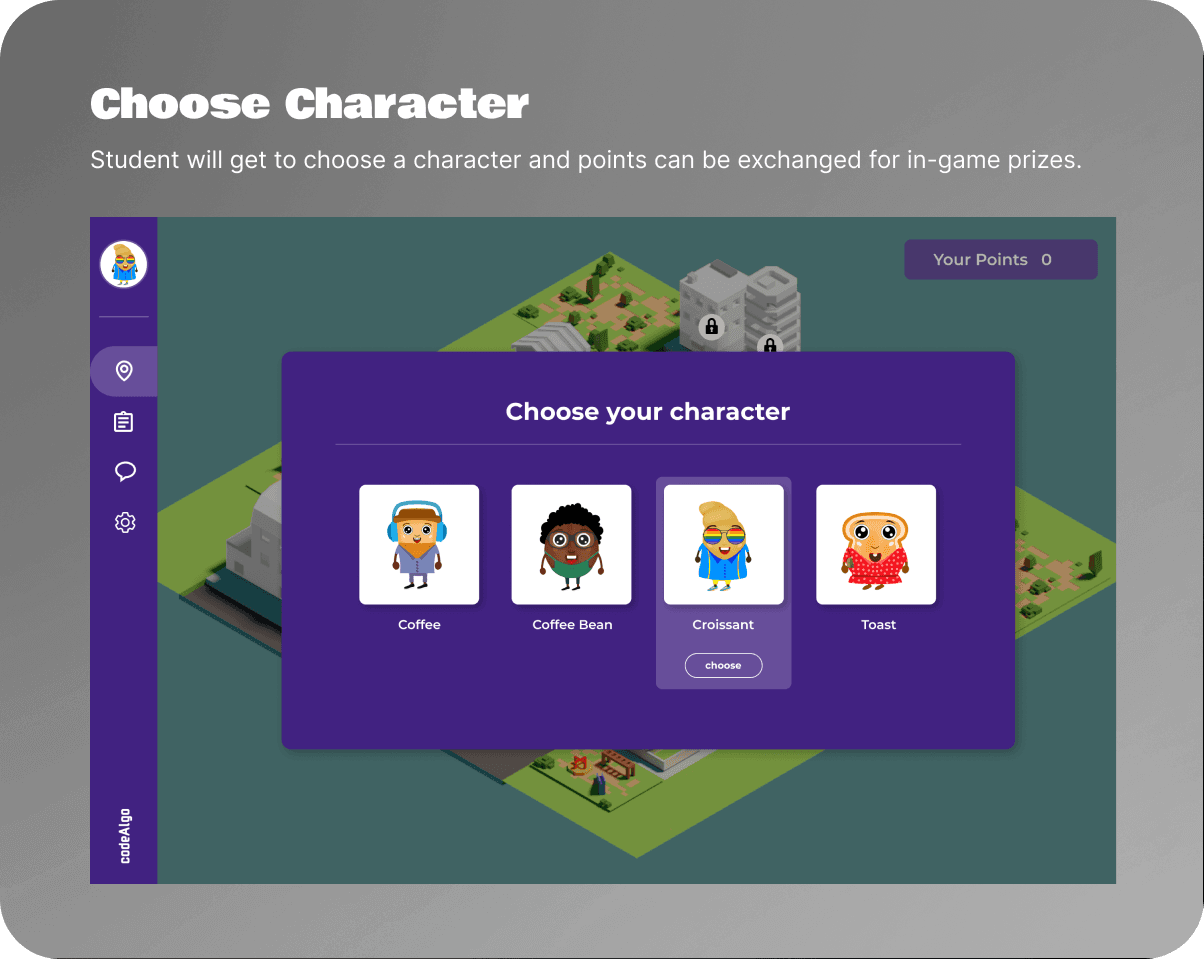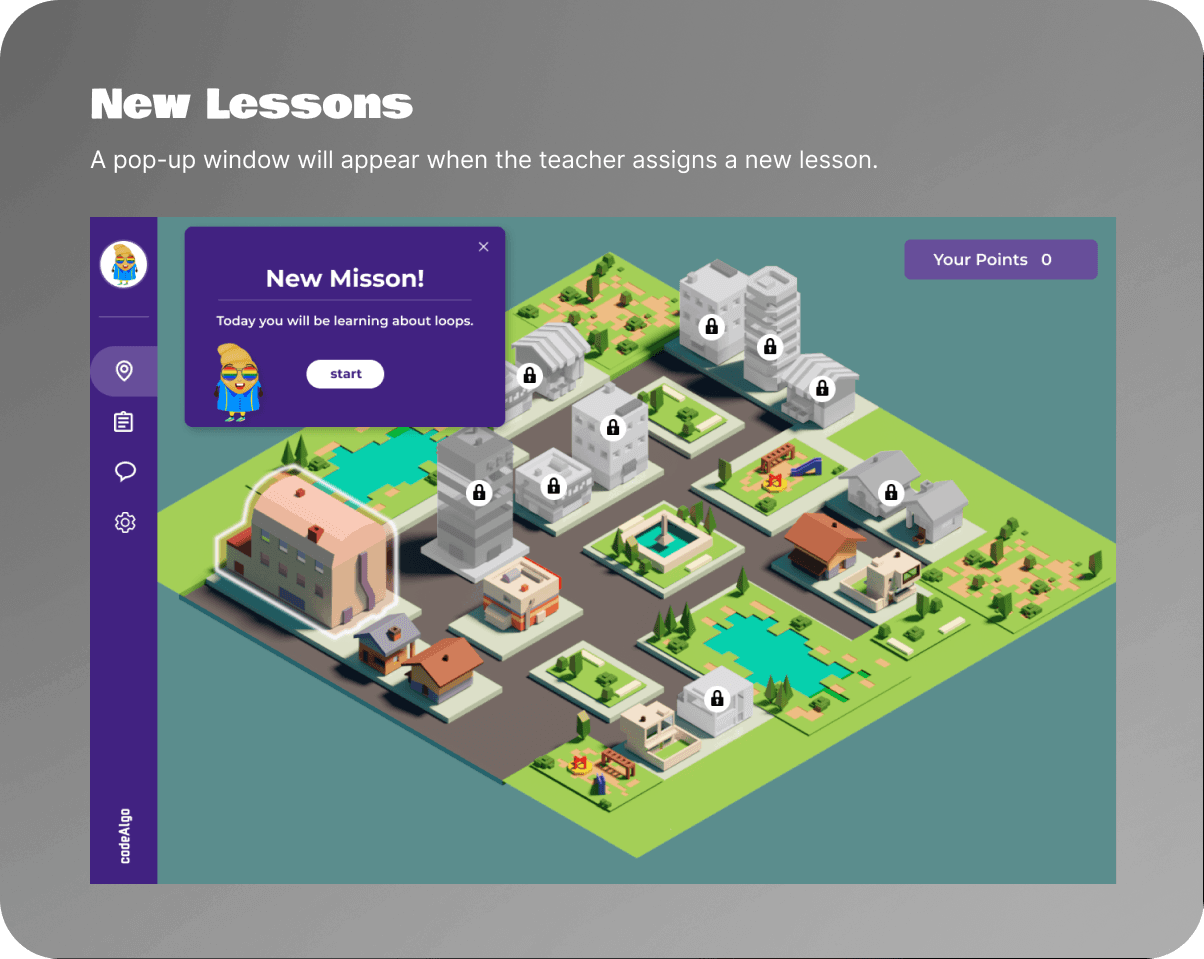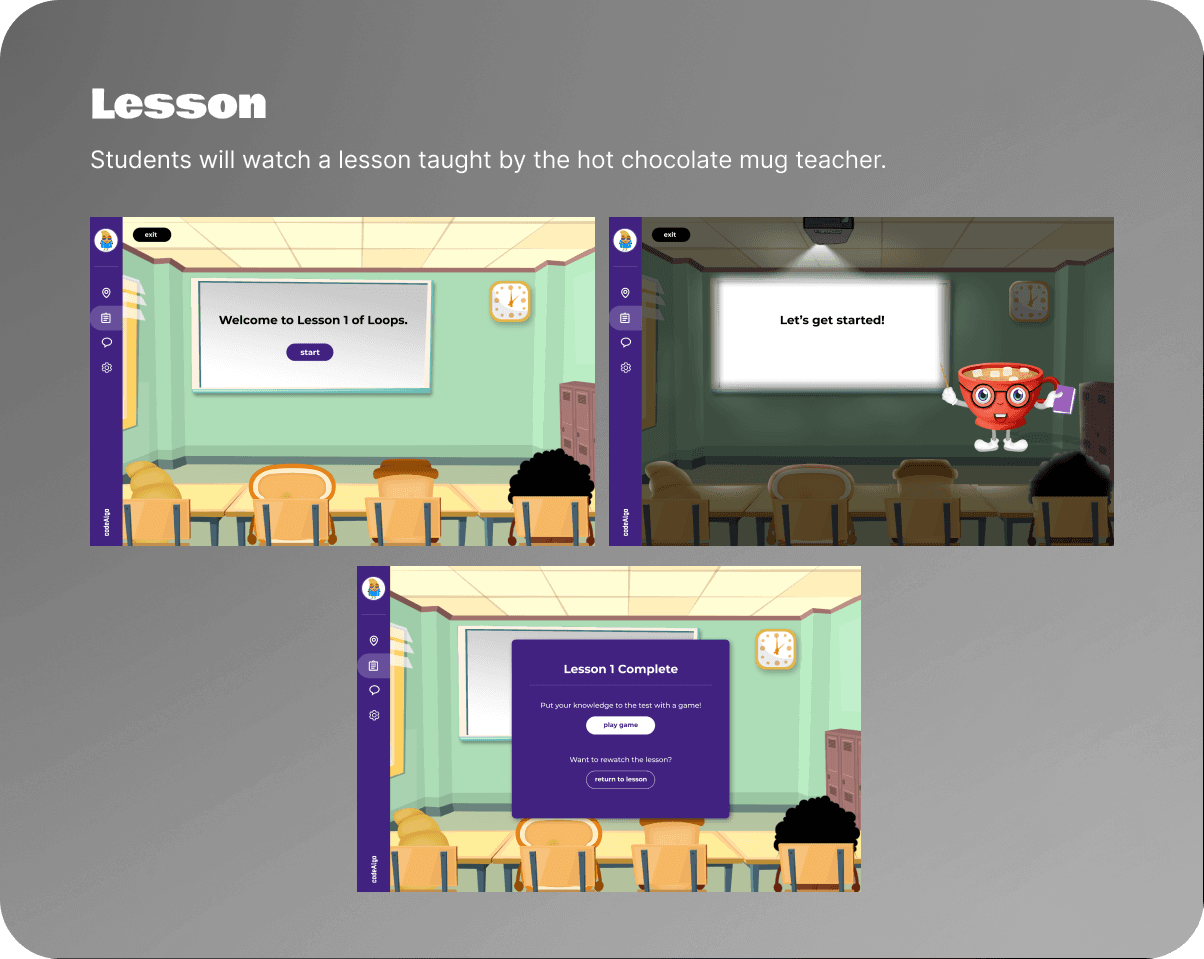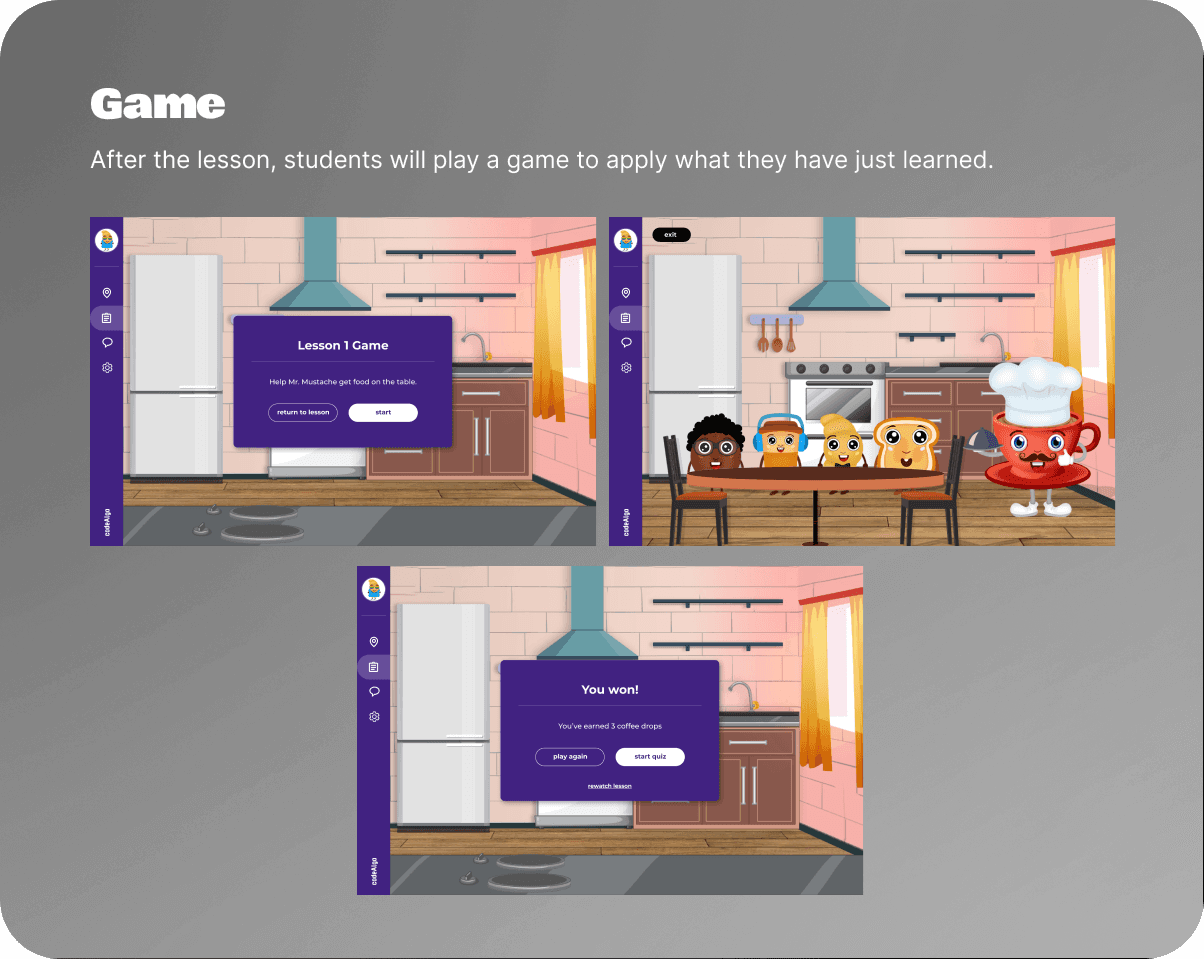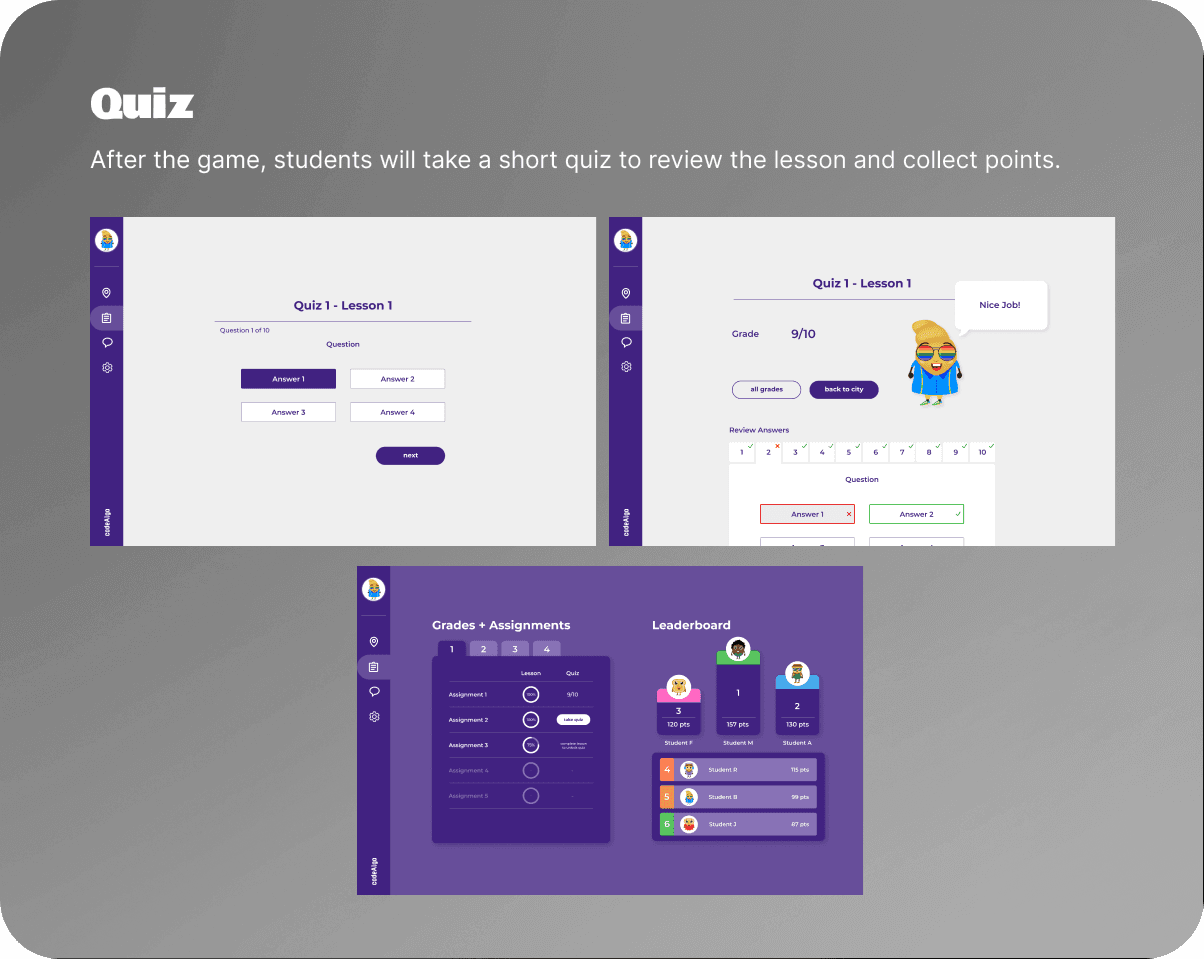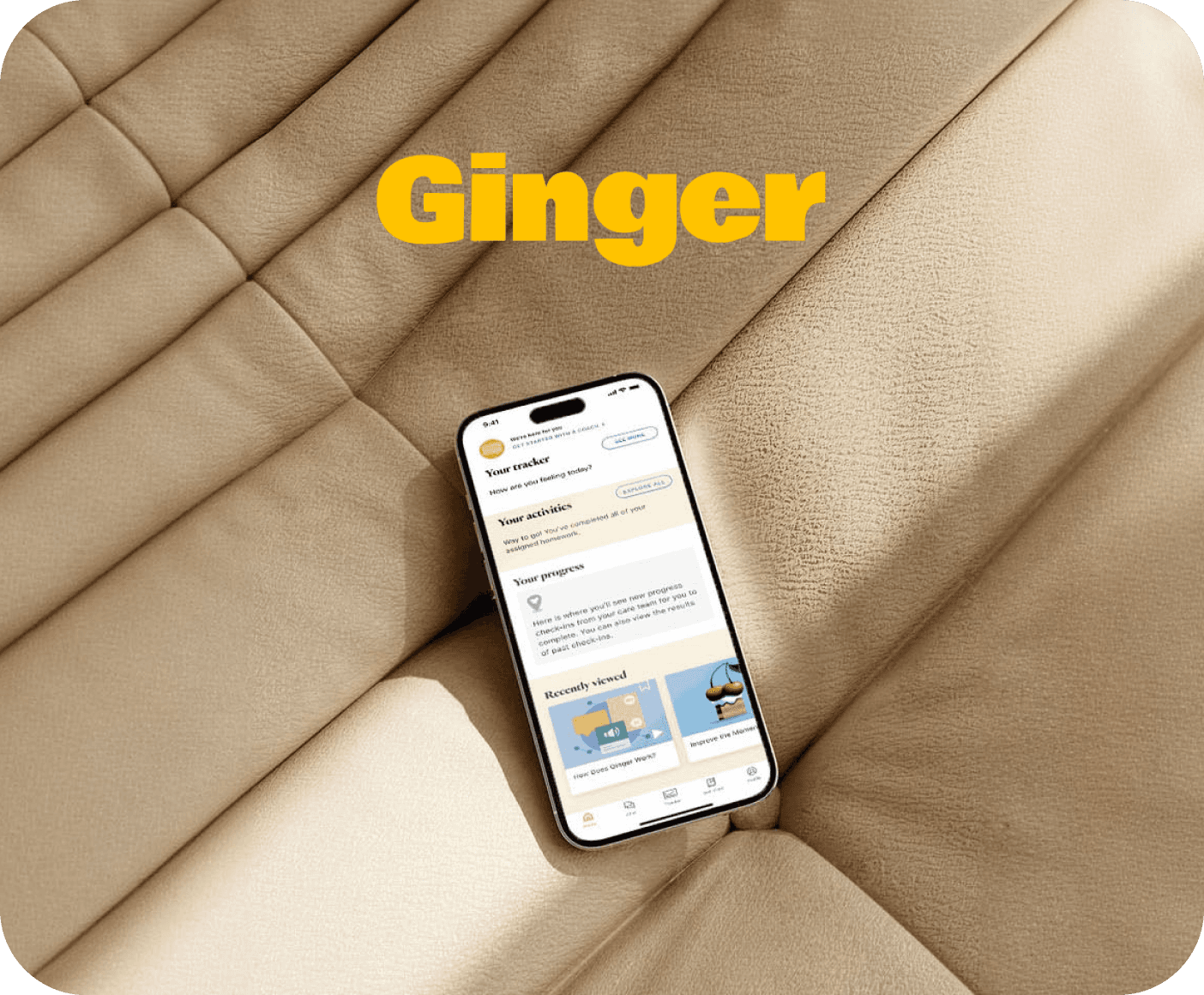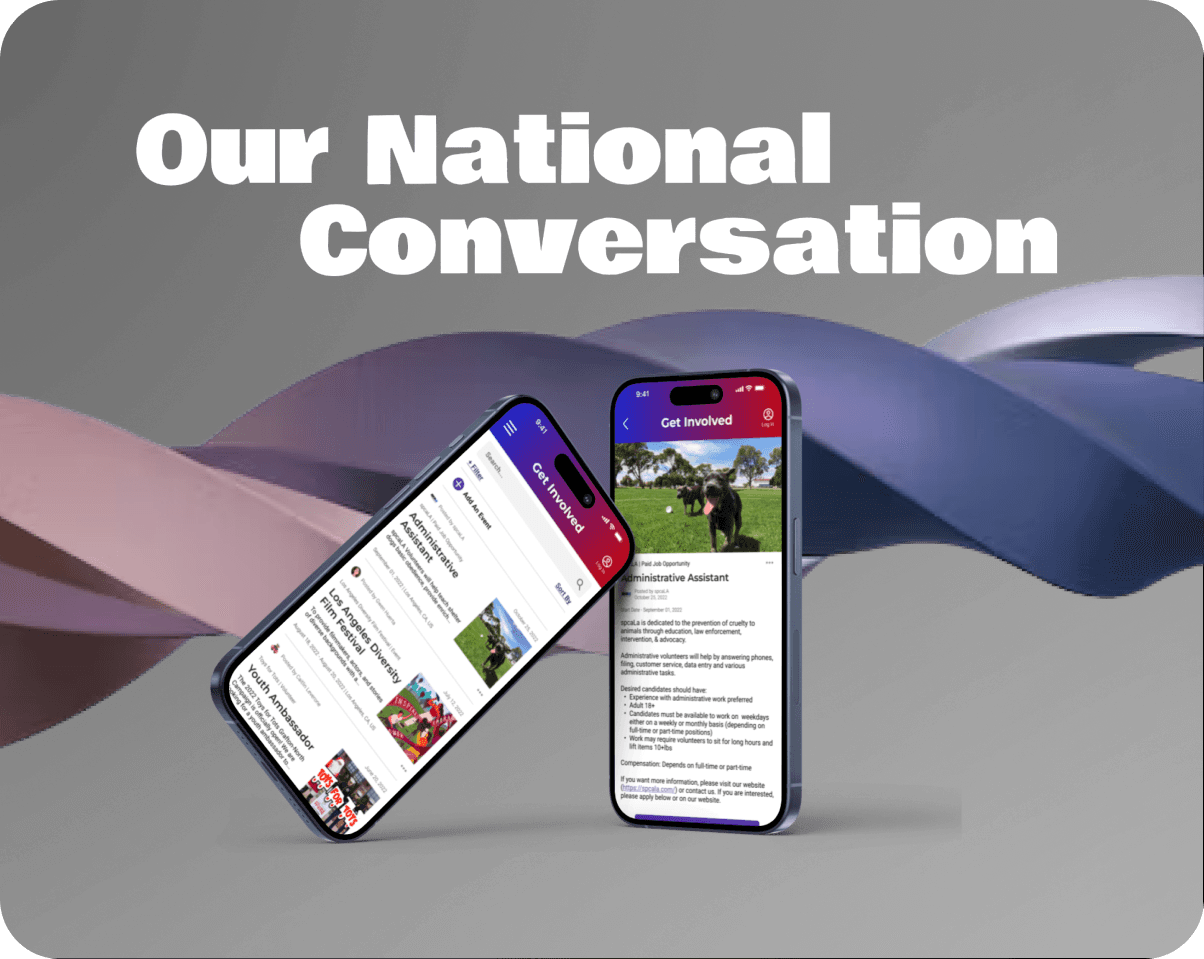Project Overview
Let's teach code!
CodeAlgo Academy is on a mission to integrate Computer Science curriculum with engaging game-oriented activities and quizzes designed for K-12 students. The lessons focus on programming concepts, using interactive games to reinforce learning in a fun and effective way.
During this 3-week team project, I worked with my team to research and design a minimum viable product for a B2C educational platform, effectively bringing our clients' vision to life and for their upcoming pitch presentation to stakeholders. I also served as the primary point of contact with our clients, facilitating communication throughout the project.
Role
UX/UI Designer
Team
Cayla & Hamed
Timeline
2 Weeks
Tools
Figma
Google Workspace
Problem
Task overload
Teachers face one of the most demanding jobs, juggling tasks such as classroom management, grading, lesson planning, and parent meetings, which makes it challenging to focus on teaching.
Solution
Our team tackled this challenge by creating a teacher portal that streamlines lesson planning, automates administrative tasks, and offers progress tracking tools, allowing teachers to focus on instruction instead of management. Additionally, CodeAlgo Academy features gamified, student-led coding lessons, which keeps students engaged and allows teachers more time for other important tasks.
Design Process
Game plan
Given the project's limited timeframe, our clients agreed to narrow the scope, focusing on researching teachers' workflows and developing a minimum viable product (MVP) for their upcoming pitch presentation to stakeholders.
User Research & Insights
Teacher considerations
Competitive Analysis
Unexpected opportunity
Gamification is becoming more prevalent in schools because it makes learning more engaging and effective by leveraging the inherent appeal of games. To assess opportunities for CodeAlgo Academy, we explored 5 companies that are currently used to teach coding in schools.
This evaluation revealed a unique opportunity for CodeAlgo Academy in multiplayer games. Multiplayer environments are especially valuable for teaching collaboration, which is key for developing social skills, enhancing problem-solving, and improving overall learning outcomes.
Sketches & Wireframing
Brainstorming designs
As we wrapped up our research and transitioned to the design phase, we held a meeting with the client to share our findings and gather feedback. During this meeting, the clients also presented a soft prototype used in their demos.,
With a clearer understanding of their vision, my team created individual sketches, which we then reviewed and critiqued together before moving on to wireframing.
Usability testing
Testing our designs
Although many teachers were available during our interviews, our usability testing phase fell during a week-long school break. As a result, we struggled to contact teachers and conducted testing with the teachers who were available at the time.
Prototype
Teacher portal
Student Lesson
Final Thoughts
Achievements
Next steps
Reflections
This was my first project working with clients and stakeholders. This experience taught me essential skills for balancing client and stakeholder involvement in the decision-making process. Collaborating with my team on this project was a rewarding experience where I was able to apply and expand my UX/UI design skills while learning about code and UI from my teammates. I'm proud of the successful prototype we delivered to our first clients and I hope the best for their pitch presentation!
